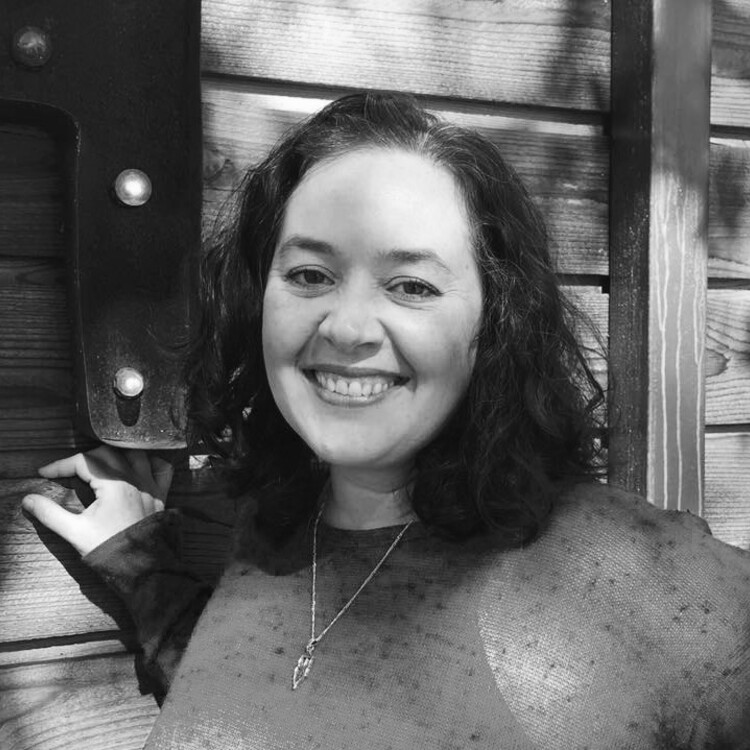The “Real World” Dilemma
Successfully Transitioning from Student to Practitioner in the Theatre Arts
I entered the freelance design world as an eager, young costume designer fresh out of a well-rounded, art-based MFA program.
My first professional gig was for a small local theatre company. I had interviewed with the producers months earlier, and was excited when they called and offered me a chance to design a show for their upcoming season. The company was successful and had a great reputation.
How do we prepare students for this potential reality without teaching them to make themselves and their work smaller, or acquiescing to a ‘one man band’ design career?
I was unprepared for the offer I received. A colleague had been working for them for several years, and had described a process that included nice budgets for both materials and her design fee. She painted a picture in which she was able to hire an assistant and stitchers, and was provided a workspace to do the job. Because theatre can be capricious, I was presented with a different scenario. The company could provide a workable budget, but there were no resources otherwise: no stock from which to pull (period!) costume pieces, no money for personnel, and a workspace that was borrowed with limited hours of usage available. At the time I accepted the position because I was afraid that if I turned them down, I wouldn’t be asked back, and as a young designer, I was hungry for the work.
I have since questioned the transition process from the comfortable nest of design school to the “real world” of professional theatre. How do we prepare students for this potential reality without teaching them to make themselves and their work smaller, or acquiescing to a “one man band” design career?

After ten years out of school and well into an established freelance design career, I offer some suggestions based on lessons learned the hard way.
Upon graduation, continue to take courses that enrich your skill set.
No matter the quality of your training, make a personal commitment to advance your skill set through professional development courses on a regular basis. Find a community college near you and enroll in their beginning fashion draping class. Attend professional conferences, and utilize the workshops offered to your greatest advantage. Perhaps a more efficient choice would be to choose an MFA program that teaches you skill sets beyond design as part of their curriculum, versus a program that has more of an art base. My master’s program was amazing. I came away with a sophisticated eye for design, and a rich education in art history. I also learned how to draw, paint, and model my designs, but my education did not include costume technology skills.
Be meticulous with your records.
Every meeting you have at the coffee shop with a potential collaborator counts as a business expense. The stack of magazines you purchase to create your research boards, the art supplies required to produce your sketches, and the mileage you put on your car are all examples of deductions you can claim on your taxes as a freelance artist. If you are going to go embark on a career as a freelance designer, it’s crucial that you understand the financial aspect of it. Develop a system of keeping all of your receipts, logging your mileage, and tracking your own expenses. You will be amazed at how much money you save if you actually deduct the cost of being a freelance designer. If you are not able to do this yourself, take the time and money to hire someone to help you with your taxes. It’s worth it come tax time.
Consider many types of design work.
Many of us come out of school with our eyes set on big dreams of Broadway or Hollywood. Goals are admirable and necessary for an artist in any medium. But reaching those particular points happen for few people, and it’s our own responsibility to make our careers fulfilling. Remain open-minded. Being a design assistant for an established designer can be a priceless experience regarding exposure, education, and networking. Industrial work (television, film, and print ads, etc.) offers a nice paycheck with a much shorter timeline than a theatrical process. For many designers, working as a technician for other designers and shops can also be rewarding work if you have a marketable skill like draping or construction.
It is OK to be discriminating.
It is great to have a big desire for work and creativity, but even as a young designer it’s a good idea to be discerning when offered work. Ask yourself hard questions. Is this a project that will really benefit my resume and portfolio? Is this a project I want to work on given the resources this company can offer? Having a strong knowledge of your own skills and limitations will help you be objective when looking at the bigger picture of projects, and outwardly, the arc of your career. It might be more beneficial for you to begin as an assistant, and work your way towards a fabulous debut design, than to simply take the first gig you’re offered because you have your heart set on having the title of Designer.
Building a career as a freelance artist is one of the most rewarding endeavors I can imagine. My career, so far, has provided me with immense personal growth, dear friends, and a beautiful portfolio. I would not change my choice to be a professional theatre designer, but I do wish I had understood some of the potential pitfalls earlier in my career. Whatever you choose, remember the wise adage: “Follow your heart, but take your brain with you.”


Comments
The article is just the start of the conversation—we want to know what you think about this subject, too! HowlRound is a space for knowledge-sharing, and we welcome spirited, thoughtful, and on-topic dialogue. Find our full comments policy here
Thank you for your comment. I agree with a lot of what you said, especially the reasons you love design.
I felt extremely lucky that my BFA program was as grounded as it was. My stage management teacher made us look at how much we would be paid to work and design and think about what other work we would have to do to survive. I was lucky enough to go to a program where most of the professors were working professionals and knew the struggle. Much like actors, designers tend to be young, over worked, under paid and idealistic... and then there are a very few, almost well paid, older and more entrenched designers. And very few people between. I think the thing we need to teach students going into this field is to figure out how they are going to make a living while they design. Do you want to teach? Do you want to do AV for events of venues? How do you feel about the wedding industrial complex? Or giant conventions? How do you feel about becoming a tour manger?
I consider myself a professional designer, I've been working for over a decade, and I've designed for some pretty awesome shows and theaters but I design between 1-4 shows a year and whenever I design my bank account takes a major hit, even when the theater/university is working very hard to pay me a nice fee. I have an MFA but I'm not a good teacher, turns out I don't really enjoy it and it's a super different skill set.
I got into design because I love making things with people. Because I adore deconstructing scripts and finding ways to lift ideas, images and stories. Because nothing is as satisfying as the magic that comes from making something that is somehow better than all it's parts. I like working with my body, I like building real things (even if they are out of light and sound) and I love what can happen when we really collaborate.
But I make a living moving heavy things from one place to another, making weddings look nice and unlocking spaces for artistes. Also it helps if you know how to make power point scale correctly, manage a tour, advance a tech rider and balance 5 - 7 different jobs with different billing systems.
My recommendation if for the transition from school to professional? Don't have kids. Marry someone wealthy. Or be wealthy in the first place.
Otherwise figure out how the hell you are going to make a living because it's not going to be from design.